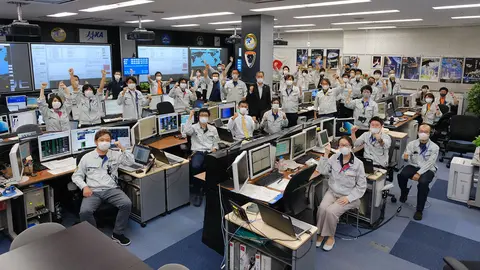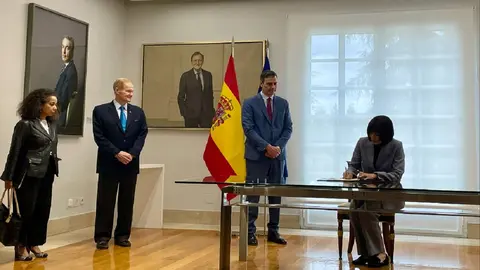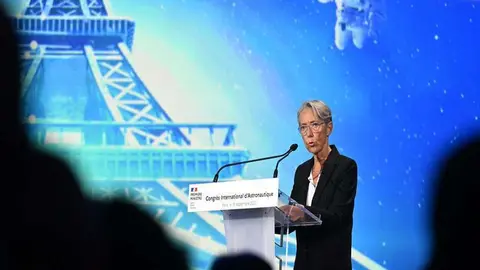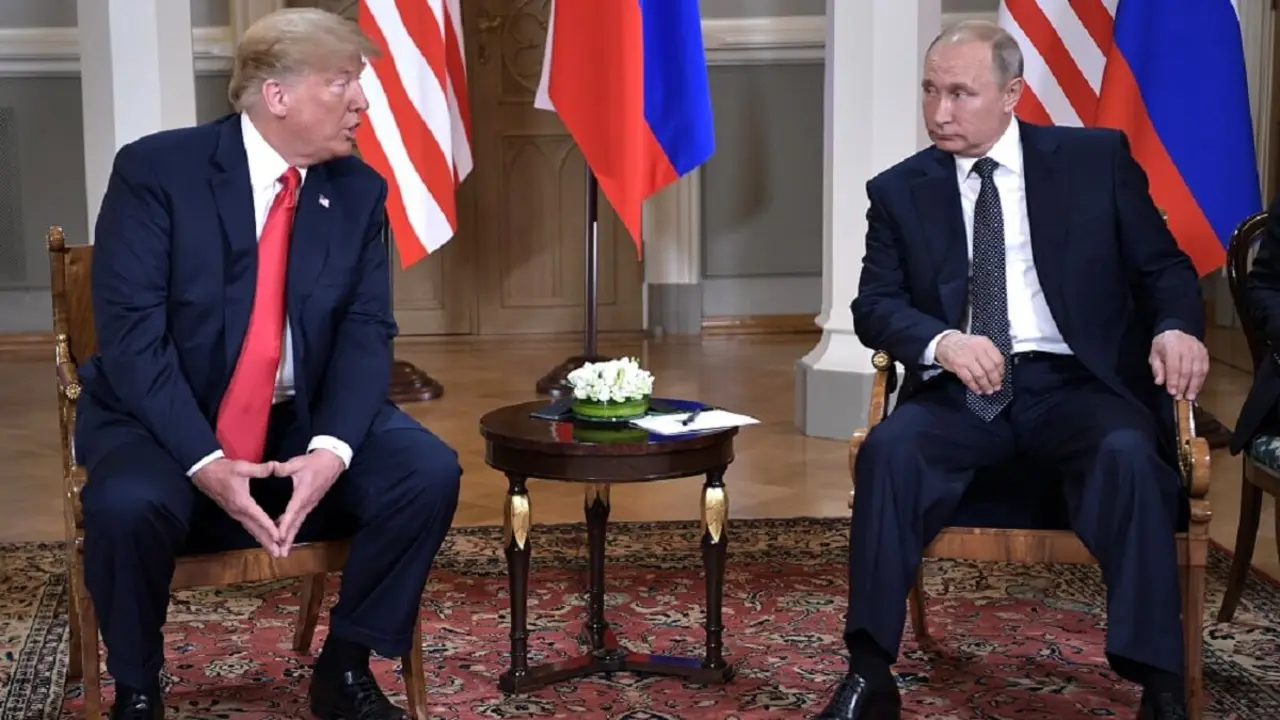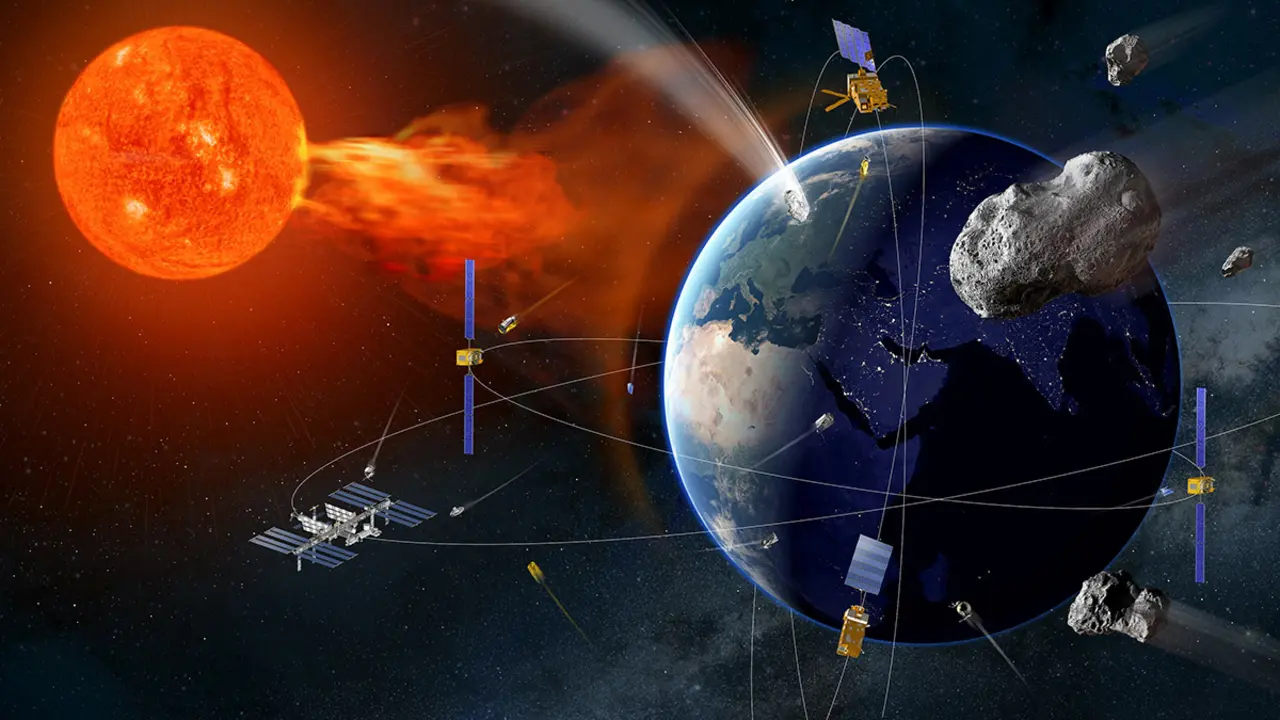The Spanish Space Agency presents itself in society at the World Astronautics Congress in Azerbaijan

The director general of the Spanish Space Agency (ESA), Miguel Belló, heads the delegation of the Spanish Space Agency (ESA) attending the 74th edition of the International Astronautical Congress (IAC), which is being held from 2 to 6 October in Baku, the capital of the former Soviet republic of Azerbaijan, whose economy depends on oil and gas prices.
Organised by the International Astronautical Federation (IAF) under the chairmanship of American space veteran Clay Mowry and under the auspices of Azercosmos, Azerbaijan's space agency, the congress is the largest annual event in the global space ecosystem, bringing together the cream of the world's space agencies, senior industry executives, academics and professionals from the global space sector.
Under the theme "Global Challenges and Opportunities: Give Spirit of Space a Chance", four priority issues are the focus of the 2023 IAC: the return to the Moon via robotic spacecraft and manned missions and its future sustainable exploitation; the governance and management of increasingly crowded space traffic; the progressive elimination of space debris; and quantum communications.

Presentation of the ESA in society, Miguel Belló and the Spanish delegation have arranged a large number of interviews and meetings with the main heads of space agencies from all over the world during the five days of the Congress. For example, with Professor Hiroshi Yamakawa, President of the Japan Space Agency, with Pamela Melroy, Deputy Administrator of NASA, and with many of the heads of Latin American agencies and those from other continents.
Belló will also attend the meeting organised by NASA in Baku with the heads of the space agencies of the 28 countries - including Spain - that have signed the Artemis agreements, a set of principles for cooperation in the exploration of outer space and the sustainable exploitation of the resources of the Moon, Mars, comets and asteroids for peaceful purposes. The latest nation to join was Germany on 14 September.

Open to international cooperation
The senior officials of the new Spanish space agency want to take advantage of their first presence at the Astronautics Congress to publicise the existence of the ESA and to present the organisation and main programmes already underway, some inherited and others newly created, at various tables and panel discussions.
The government team accompanying Miguel Belló affirms that the message that the director general intends to convey in Baku is that the Spanish Space Agency "already exists, is operational and open to international collaboration as a basis for space exploration".
With regard to short-, medium- and long-term projects, Miguel Belló will only be able to advance the main lines of the National Space Strategy and the National Space Programme, which are in their final stages among the organisations represented on the Agency's Governing Council, before receiving the approval of the Council of Ministers.

Both documents should be finalised in the coming weeks, as the Minister of Science and Innovation, Diana Morant, who is the ESA president, aims to have them available for the Informal Interministerial Space Council and the meeting of ministers of the European Space Agency (ESA), both convened in Seville in early November within the framework of the Spanish presidency of the EU.
Since Miguel Belló took up the post of Executive Director of the Agency last April, his presence at important international space forums has been continuous. He was one of the participants at the meeting of leaders of the space economy held on 6 and 7 June in Bengalore, which was convened and organised by the Indian Space Research Agency (ISRO), as the Government of New Delhi held the presidency of the G20.

Presence of seven Spanish companies
Belló took advantage of being in Bangalore surrounded by senior officials from other state agencies to hold bilateral meetings. One of these was with the executive director of the National Commission for Space Activities of Argentina (CONAE), Raúl Kulichevsky, with whom he agreed to set up a working team with a view to signing a framework agreement for cooperation in different areas.
Spain is also represented in the exhibition area of the Congress with a large stand organised by ICEX, displaying the technologies of the companies Alén, Arquimea, QVS, Deimos, DHV, GMV and Sener Aeroespacial. Also exhibiting their projects are the space agencies of the host country, Saudi Arabia, Brazil, Korea, Czech Republic, France, Emirates, United States, India, Italy, Japan, Luxembourg, Poland, United Kingdom, Sweden, South Africa and Turkey.

Unlike the 2022 event in Paris, the director general of the Russian Space Agency, Yuri Borisov, has been invited to Baku, as has the Russian space community. Borisov has confirmed that he will be speaking at the opening plenary session which today, 2 October, brings together the heads of the agencies of the world's major space powers.
This year's Congress has been overshadowed by recent events in Nagorno-Karabakh, a small territory in Azerbaijan whose ethnic Armenian population aspired to join neighbouring Armenia. The Baku government of President Ilham Aliyev - in power since October 2003 - has won the victory with the help of Turkey and the passivity of Moscow.

The Nagorno-Karabakh conflict and the Washington-Moscow-Brussels crisis over the war in Ukraine have prompted NASA Administrator Bill Nelson to decline to attend Baku. And ESA's director general, Austrian Josef Aschbacher, cancelled his trip at the last minute. Tycoon Elon Musk will speak, but will do so by videoconference.
Over the five days of the Congress, more than 4,000 professionals from all over the world are expected to attend. They will fill the halls with keynote lectures, presentations and round tables presenting studies, research and projects on ways to mitigate the generation of space debris, the manufacture of intelligent spacecraft, liquid propulsion engines for launch vehicles, quantum communications satellites, transport infrastructures for permanent access to space and nuclear thermal propulsion.


